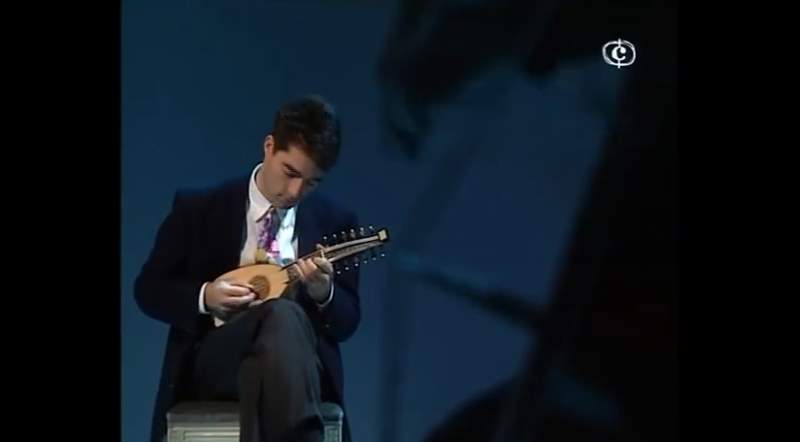Play Vivaldi
View credits, reviews, tracks and shop for the 1974 Vinyl release of 'The Romeros Play Vivaldi' on Discogs. Antonio Vivaldi (1678-1741) was an Italian virtuoso violinist and recognized as one of the greatest Baroque composers whose influence during his lifetime was widespread across Europe. There are multiple ways to access and control most things in Vivaldi. Play around and find what works for you. Geeking-out is the way. Tweaking software to get it working just right for you is a totally underrated pastime. Vivaldi is made for exploring, fine-tuning and discovering what a browser can do.
- Antonio Lucio Vivaldi was an Italian Baroque composer, virtuoso violinist, teacher and cleric. Born in Venice, he is recognized as one of the greatest Baroque composers, and his influence during his lifetime was widespread across Europe. He is known mainly for composing many instrumental concertos, for the violin and a variety of other instruments, as well as sacred choral works and more than.
- Download Vivaldi Get it on Google Play Everything was peaceful until one day Vivaldia wakes up to discover that her peaceful city has been taken over by the big evil machines who want to steal everyone’s identity and turn people into numbers.
Our editors will review what you’ve submitted and determine whether to revise the article.
Join Britannica's Publishing Partner Program and our community of experts to gain a global audience for your work! Betsy SchwarmThe Four Seasons, Italian Le quattro stagioni, group of four violinconcerti by Italian composer Antonio Vivaldi, each of which gives a musical expression to a season of the year. They were written about 1720 and were published in 1725 (Amsterdam), together with eight additional violin concerti, as Il cimento dell’armonia e dell’inventione (“The Contest Between Harmony and Invention”).
Play Vivaldi's Best Music
The Four Seasons is the best known of Vivaldi’s works. Unusually for the time, Vivaldi published the concerti with accompanying poems (possibly written by Vivaldi himself) that elucidated what it was about those seasons that his music was intended to evoke. It provides one of the earliest and most-detailed examples of what was later called program music—music with a narrative element.
Vivaldi took great pains to relate his music to the texts of the poems, translating the poetic lines themselves directly into the music on the page. In the middle section of the Springconcerto, where the goatherd sleeps, his barking dog can be marked in the viola section. Other natural occurrences are similarly evoked. Vivaldi separated each concerto into three movements, fast-slow-fast, and likewise each linked sonnet into three sections. His arrangement is as follows:

Spring (Concerto No. 1 in E Major)
Allegro
Spring has arrived with joy
Welcomed by the birds with happy songs,
And the brooks, amidst gentle breezes,
Murmur sweetly as they flow.
The sky is caped in black, and
Thunder and lightning herald a storm
When they fall silent, the birds
Take up again their delightful songs.
Largo e pianissimo sempre
And in the pleasant, blossom-filled meadow,
To the gentle murmur of leaves and plants,
The goatherd sleeps, his faithful dog beside him.
Allegro
To the merry sounds of a rustic bagpipe,
Nymphs and shepherds dance in their beloved spot
When Spring appears in splendour.

Summer (Concerto No. 2 in G Minor)
Allegro non molto
Under the merciless sun of the season
Languishes man and flock, the pine tree burns.
The cuckoo begins to sing and at once
Join in the turtledove and the goldfinch.
A gentle breeze blows, but Boreas
Is roused to combat suddenly with his neighbour,
And the shepherd weeps because overhead
Hangs the fearsome storm, and his destiny.
Adagio
His tired limbs are robbed of rest
By his fear of the lightning and the frightful thunder
And by the flies and hornets in furious swarms.
Presto
Alas, his fears come true:
There is thunder and lightning in the heavens
And the hail cuts down the tall ears of grain.

Autumn (Concerto No. 3 in F Major)Winter (Concerto No. 4 in F Minor)
Allegro
The peasant celebrates with dancing and singing
The pleasure of the rich harvest,
And full of the liquor of Bacchus
They end their merrymaking with a sleep.
Adagio molto
All are made to leave off dancing and singing
By the air which, now mild, gives pleasure
And by the season, which invites many
To find their pleasure in a sweet sleep.
Allegro
The hunters set out at dawn, off to the hunt,
With horns and guns and dogs they venture out.
The beast flees and they are close on its trail.
Already terrified and wearied by the great noise
Of the guns and dogs, and wounded as well
It tries feebly to escape, but is bested and dies.
Allegro non molto
Frozen and shivering in the icy snow,
In the severe blasts of a terrible wind
To run stamping one’s feet each moment,
One’s teeth chattering through the cold.
Largo
To spend quiet and happy times by the fire
While outside the rain soaks everyone.
Allegro


To walk on the ice with tentative steps,
Going carefully for fear of falling.
To go in haste, slide, and fall down to the ground,
To go again on the ice and run,
In case the ice cracks and opens.
To hear leaving their iron-gated house Sirocco,
Boreas, and all the winds in battle—
This is winter, but it brings joy.
Vivaldi Music Free
